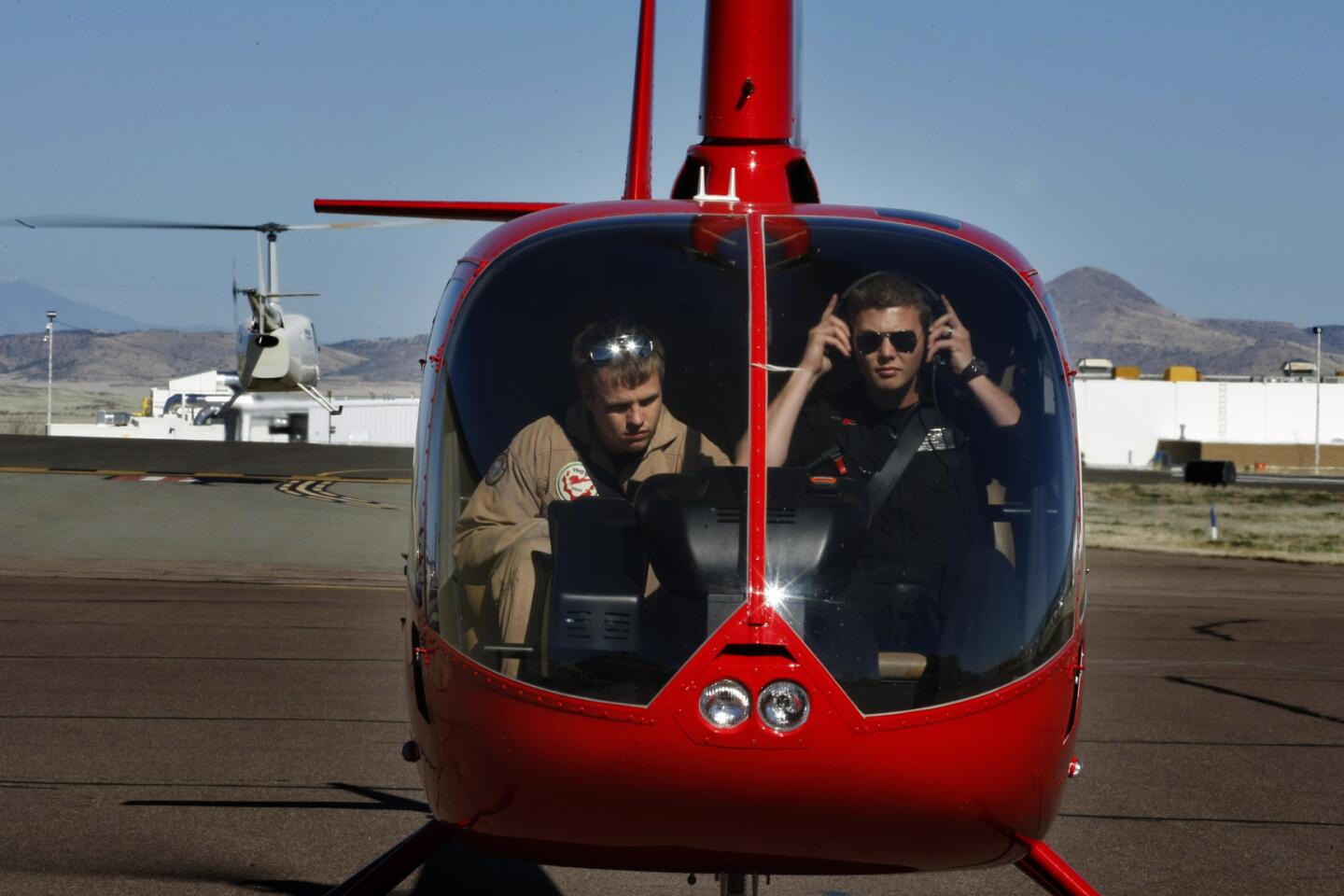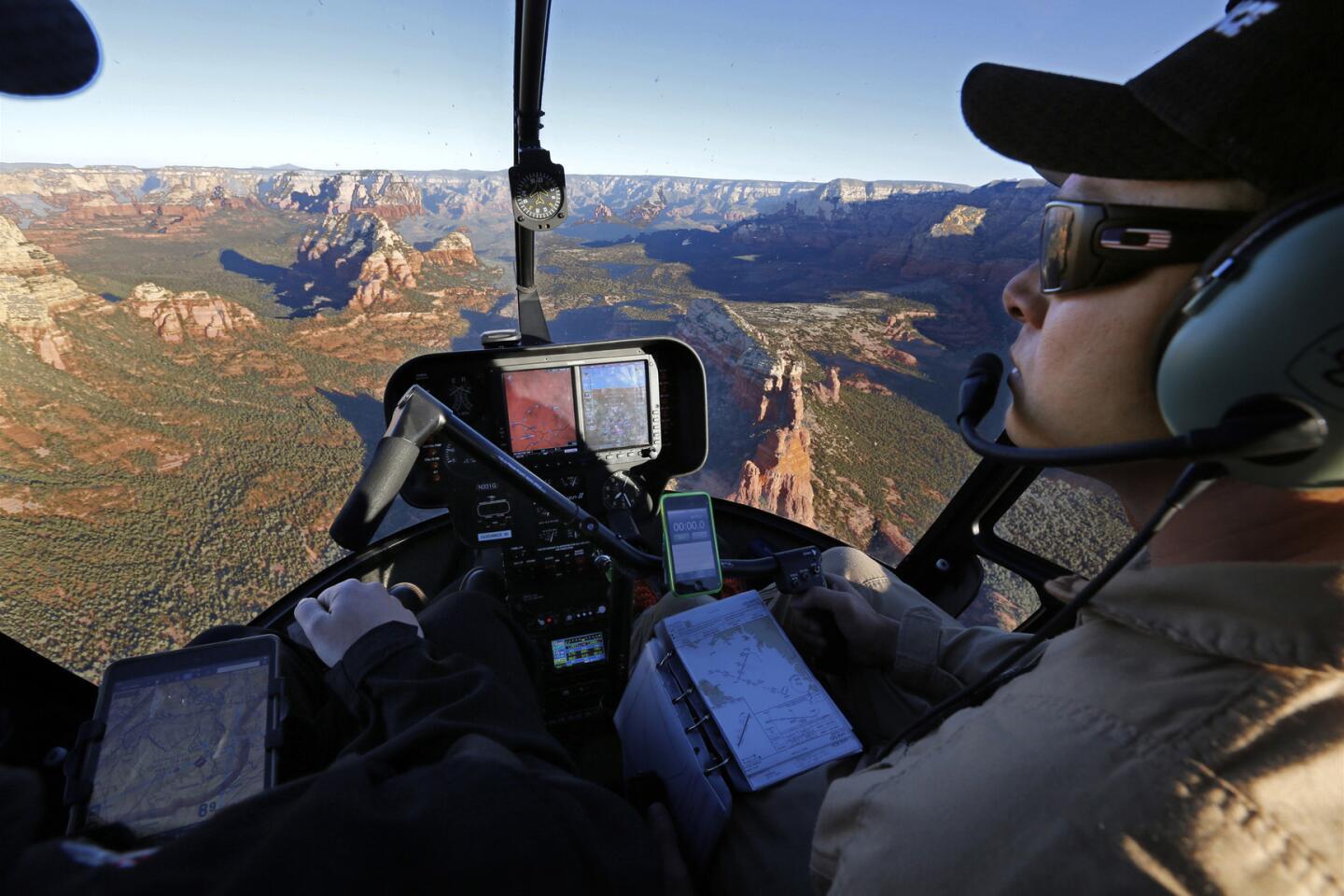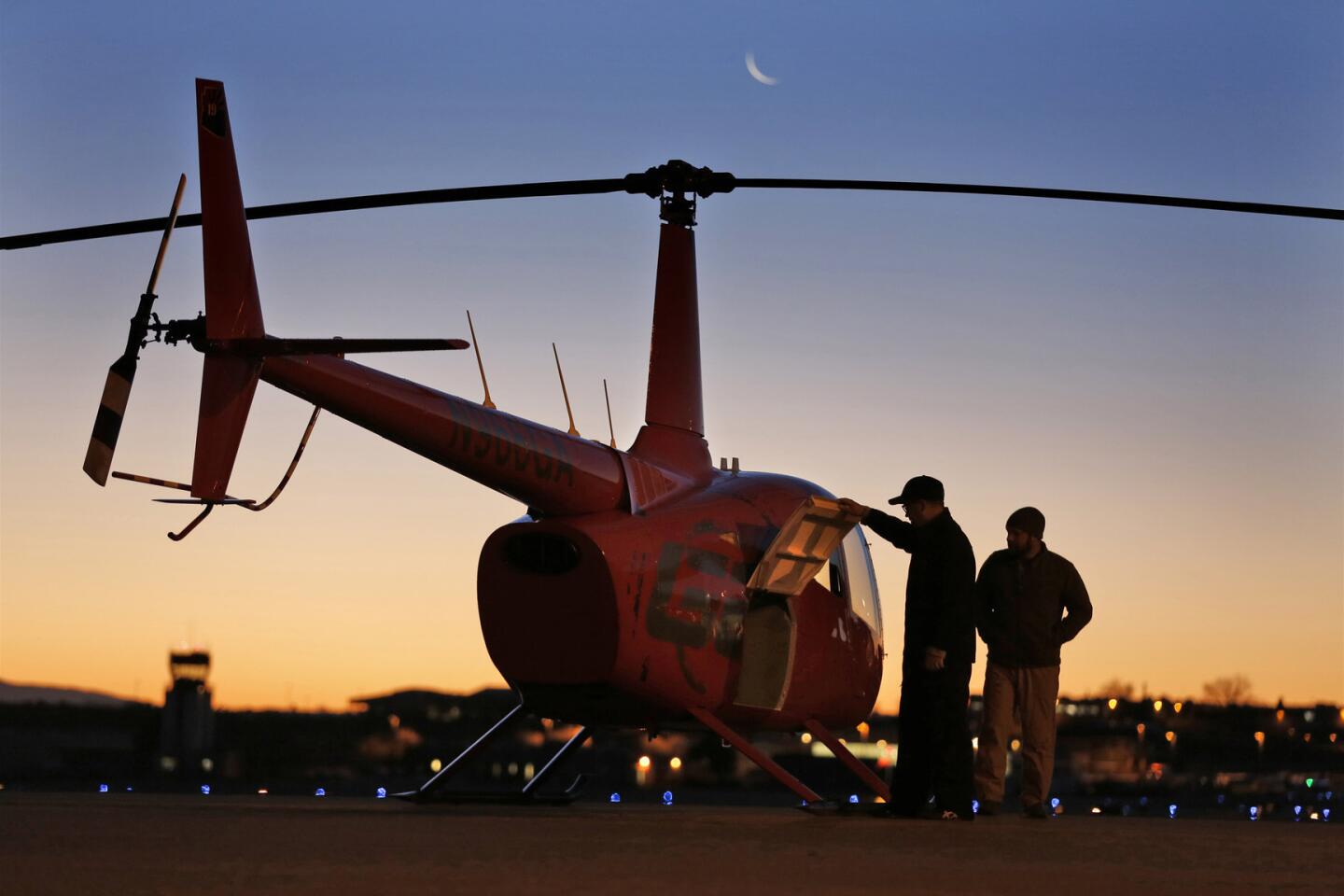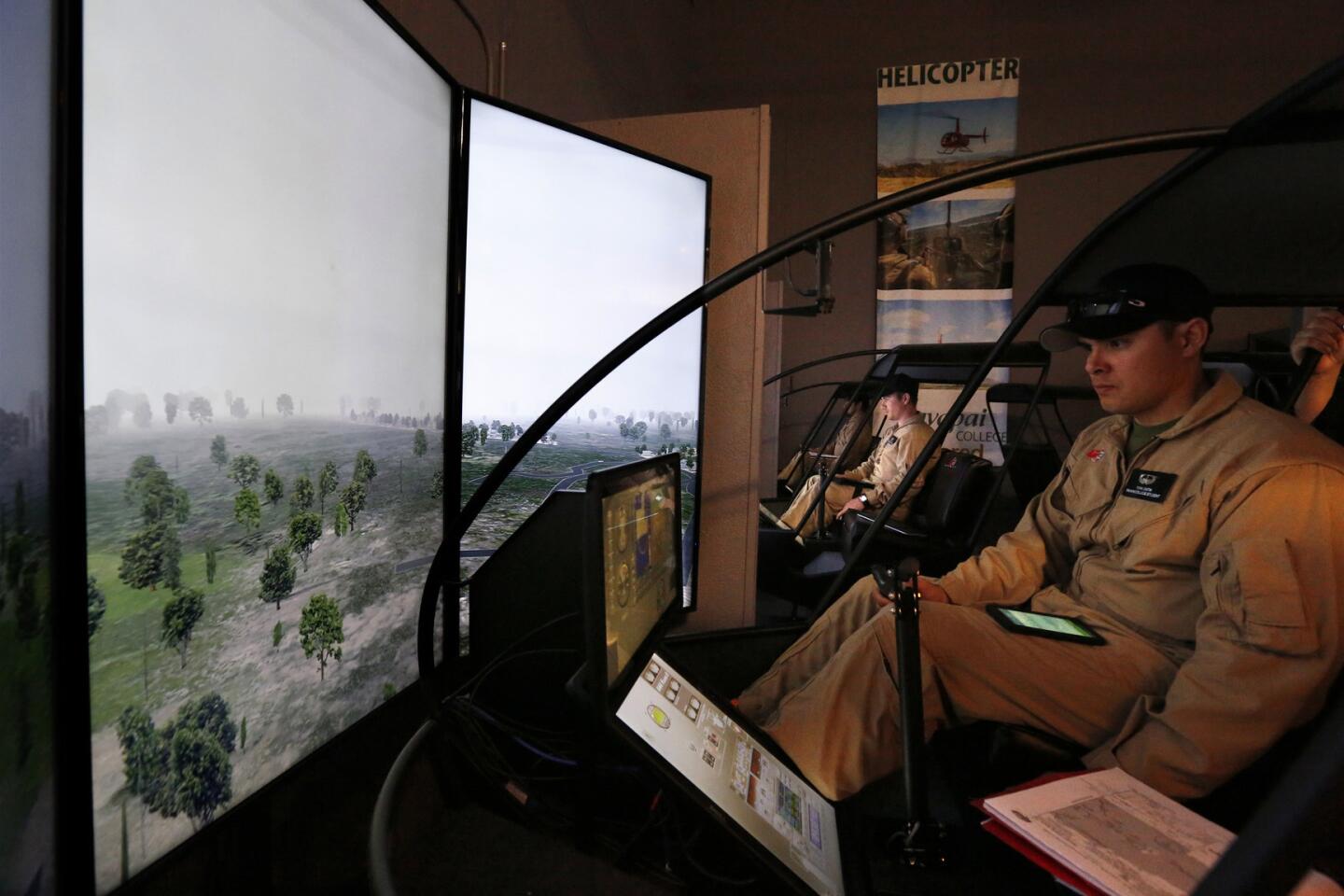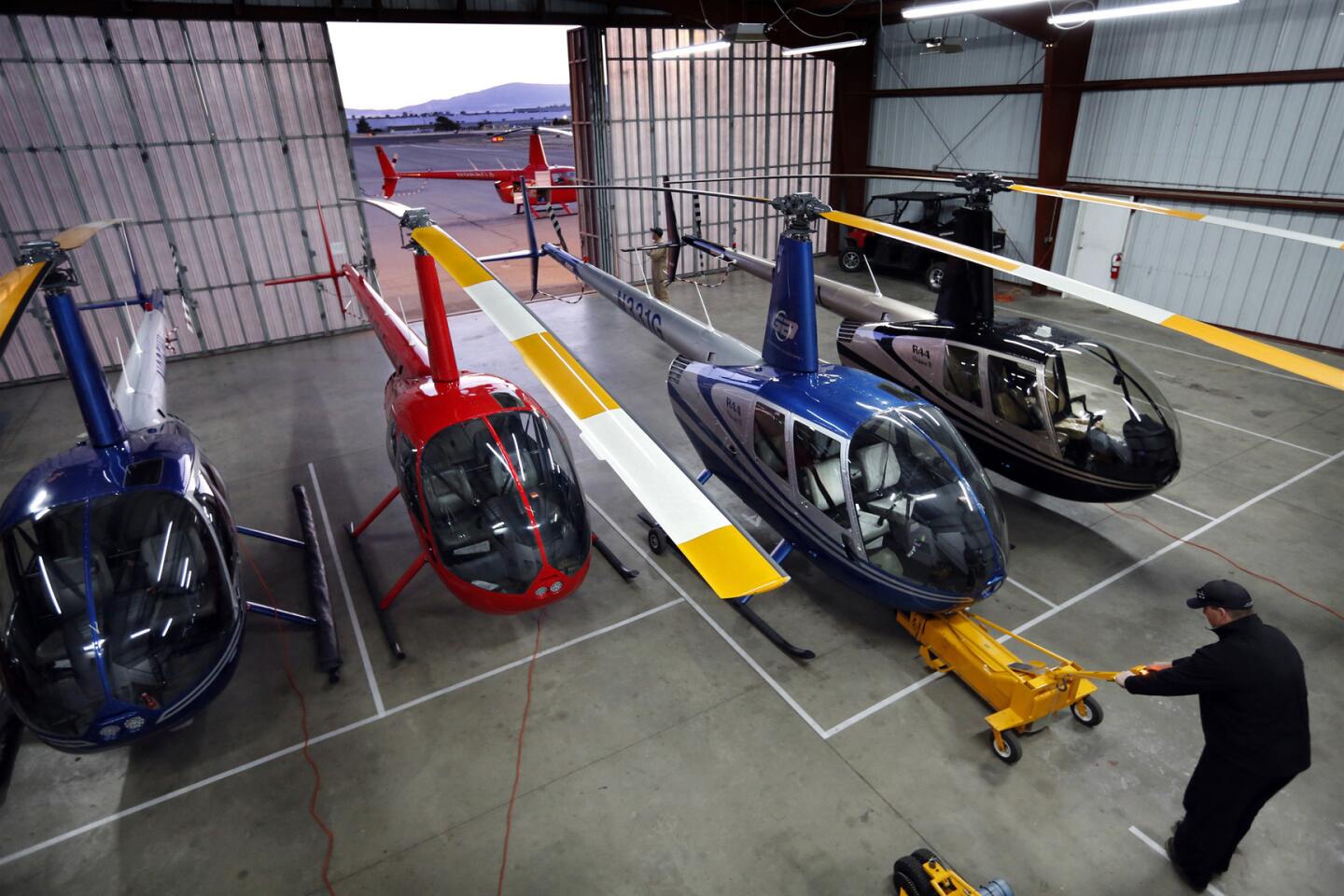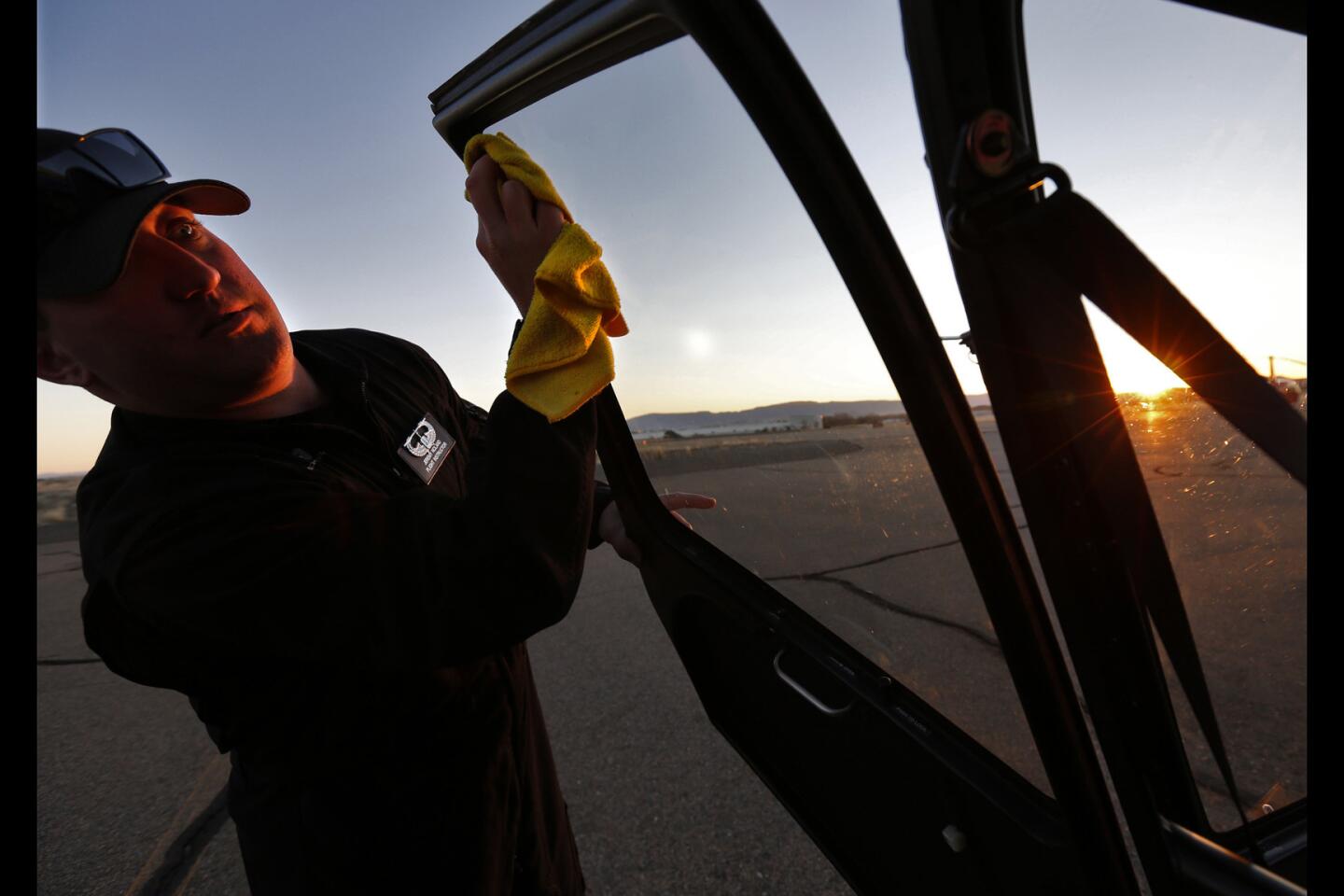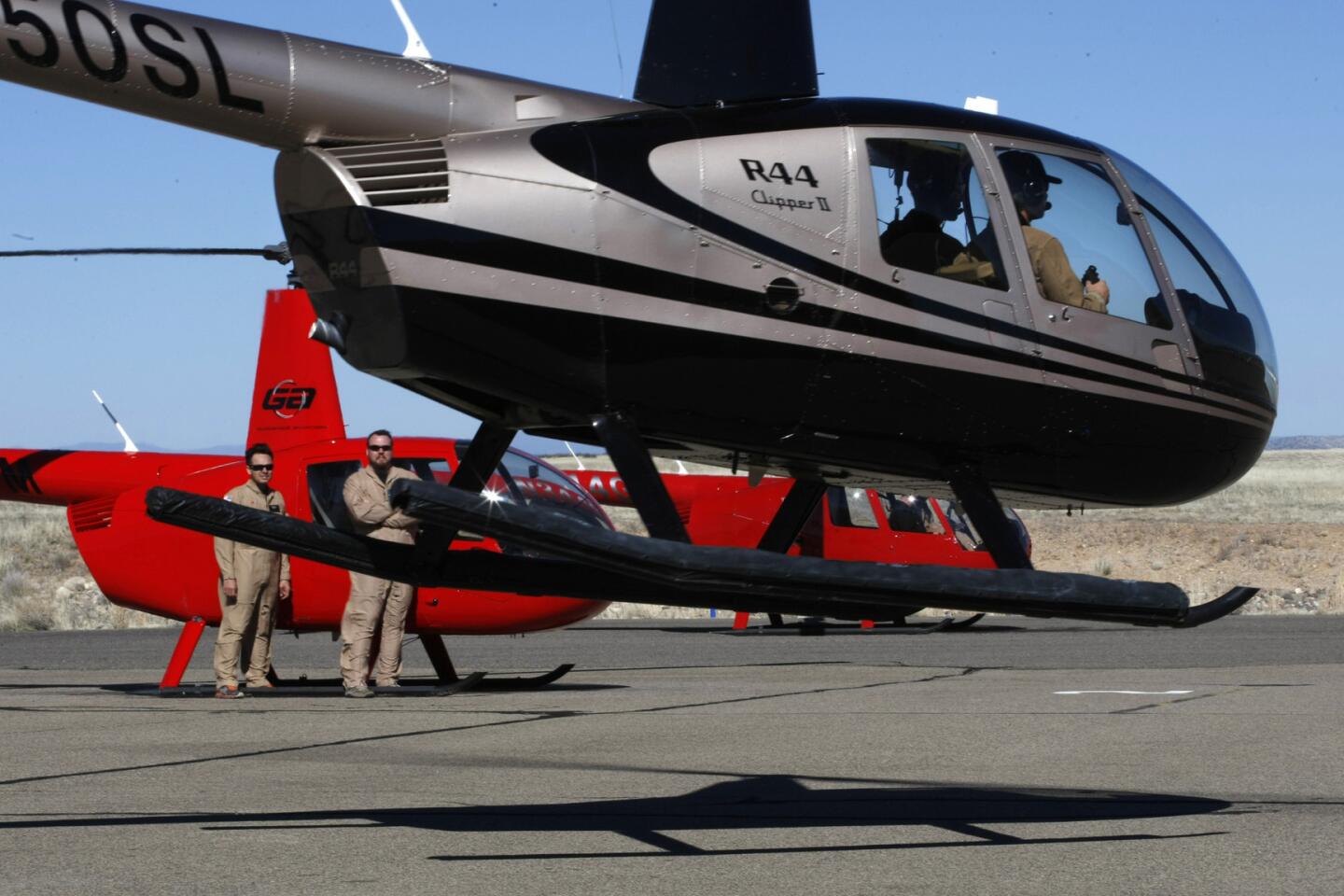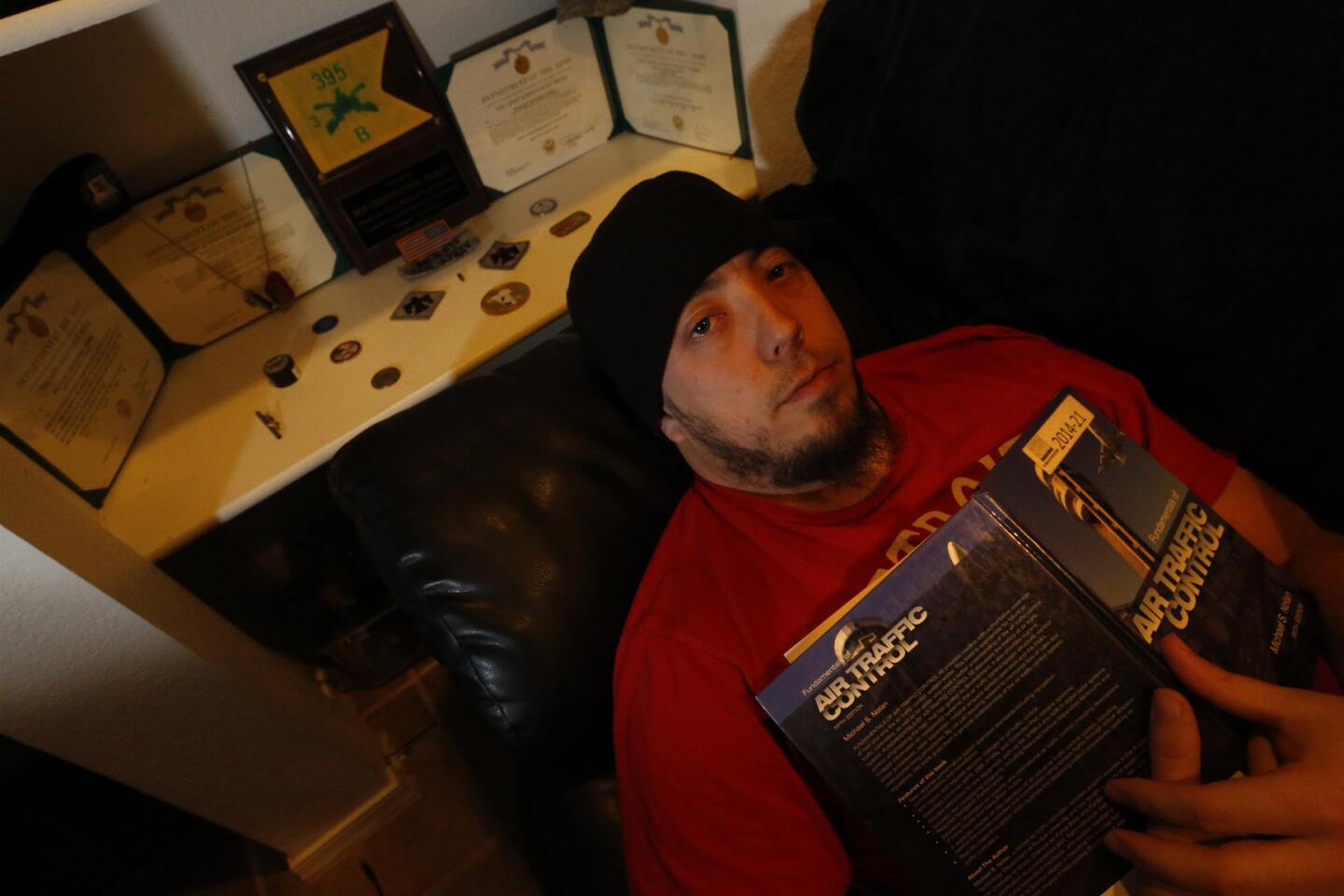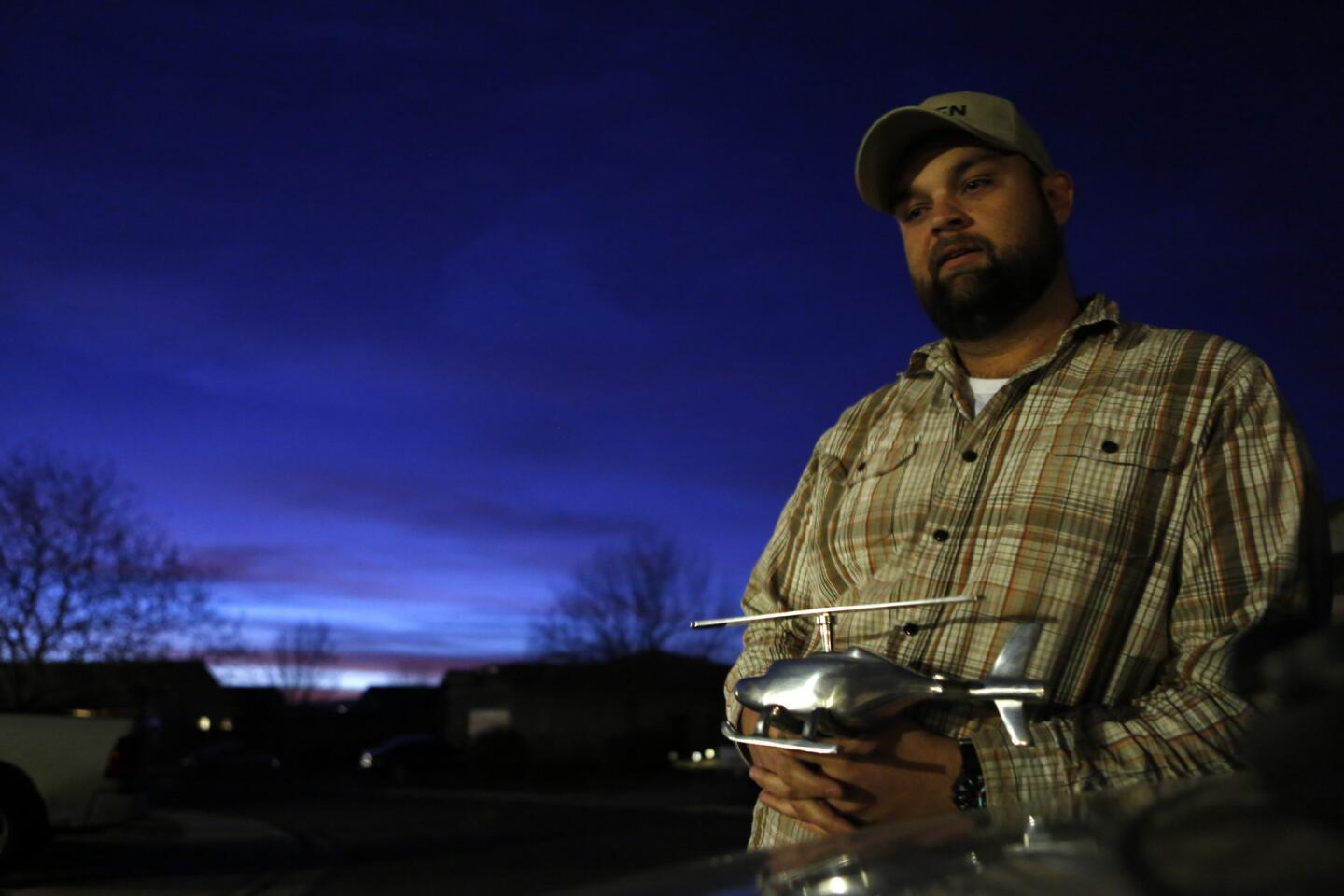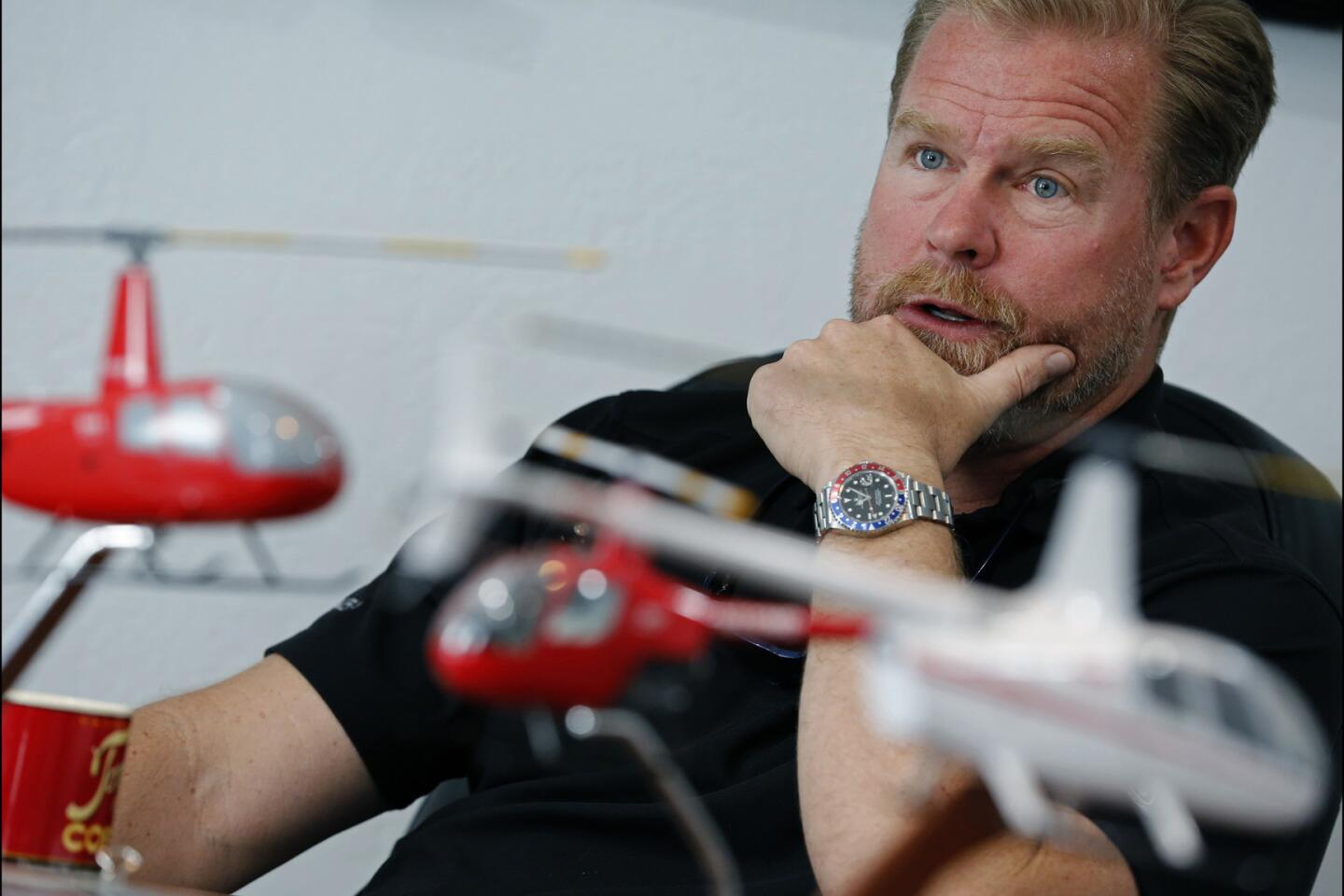Veterans’ paid helicopter flight training should be rolled back, advocates say
- Share via
Veterans groups told a congressional committee Tuesday they supported a proposal that would essentially eliminate government-paid helicopter flight training for former service members because it is wastefully expensive.
Christopher Neiweem, a legislative associate for Iraq and Afghanistan Veterans of America, testified that the legislation was necessary “to protect VA benefits from abuse.” A representative of Veterans of Foreign Wars also spoke in favor of the proposal.
The Times reported this month that a loophole in the latest GI Bill had allowed flight companies to charge high fees to train veterans entirely at government expense. In some cases, the companies collect more than $500,000 for a single student.
The companies avoid spending caps by working as contractors for public colleges and universities, where degree programs are not subject to GI Bill limits. Without that affiliation, annual payments for one veteran would be capped at $11,563.
The new legislation would limit annual payments for flight degree programs to $20,235 — the same cap now in place for programs of all types at private colleges and universities. Helicopter flight training companies say passage of the proposed legislation would kill their businesses.
“We’d be done,” Sean Reid, the owner of Utah-based Upper Limit Aviation, said in an interview about the proposal this month. “I can’t think of a single company that wouldn’t be put out of business.”
Upper Limit trains about 230 veterans through contracts with two public schools in Utah. Based on 2014 prices, flight fees for one student can top $550,000 — higher than anywhere else in the country.
The program is expensive because veterans fly sophisticated helicopters that are far costlier to operate than basic models most other students fly during training.
Reid said he would probably be forced to sell off his fleet.
Upper Limit is more expensive than other helicopter training companies tapping the GI Bill. At the bottom of the cost scale are programs that cost about $100,000. The owners of those less expensive schools say the high fees charged by some threaten to bring down the entire industry.
“I’m afraid that these schools that are abusing it so much — they’re going to make it so nobody is getting flight training,” said Catherine Weber, owner of Silverhawk Aviation in Caldwell, Idaho, which trains about 65 veterans through a contract with Treasure Valley Community College in nearby Ontario, Ore.
She said her company holds down costs by using the most affordable helicopters. She criticized competitors who favor training in expensive turbine-powered models.
“It’s like going to driving school and using a Ferrari,” she said.
The spending cap would apply to both helicopter programs and airplane programs, which are far less expensive and thought to be less popular. In 2014, 1,884 veterans were enrolled in flight programs at a cost of $79.8 million, according to the VA.
Rep. Brad Wenstrup (R-Ohio), who is sponsoring the proposal, said this week that he wanted to minimize the impact on veterans already in training.
But even if veterans are allowed to complete their training, they would face great difficulty advancing in their careers.
Most finish their training with a commercial license and 200 to 300 hours of experience in the air. To reach 1,000 hours — the minimum most employers and their insurers require — most new pilots work as flight instructors for a year or two. They usually work for $15 to $20 an hour at the schools that trained them.
If Congress halts the influx of new students, instructor jobs will dry up. There would not be enough non-veterans to train.
“I would be extremely screwed,” said Matthew Kurtz, who left the Army in 2013, after eight years and three combat tours, to pursue his dream of flying.
Kurtz enrolled in Dodge City Community College in Kansas and moved to Prescott, Ariz., to start a flight school at Universal Helicopters, which has a contract with the college. He is on pace to finish his training this year at a total cost of $200,000 to $300,000, he said.
Kurtz, who is 27 and has three children, said he hoped one day to fly for a police department or an air ambulance service.
He said he supported a cap that would still allow veterans to become pilots.
By Tuesday afternoon, more than 1,900 people had signed an online petition that went up Saturday to fight the proposed legislation. Based on messages they posted, most were students or staff members of the flight schools.
They accused the government of reneging on its promises to veterans or punishing them for the abuses of some companies. Some pointed out that the cost of training was tiny compared with overall military spending.
The flight companies say the helicopter industry is dominated by older pilots who learned to fly in the military during the Vietnam War and that their retirements will result in a national shortage of pilots.
Data from the FAA do not support that. Currently, 25,144 people under age 65 hold commercial licenses and medical clearance to fly. A breakdown by age shows there are more pilots age 25 to 35 than 55 to 65.
The data do not show how many of those pilots are actually employed.
Twitter: @AlanZarembo
More to Read
Sign up for Essential California
The most important California stories and recommendations in your inbox every morning.
You may occasionally receive promotional content from the Los Angeles Times.
